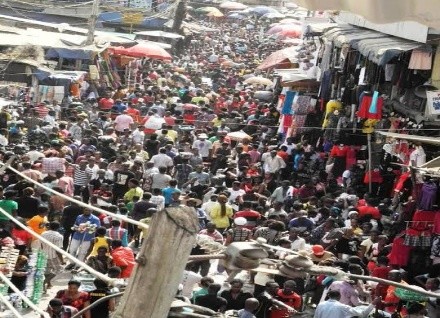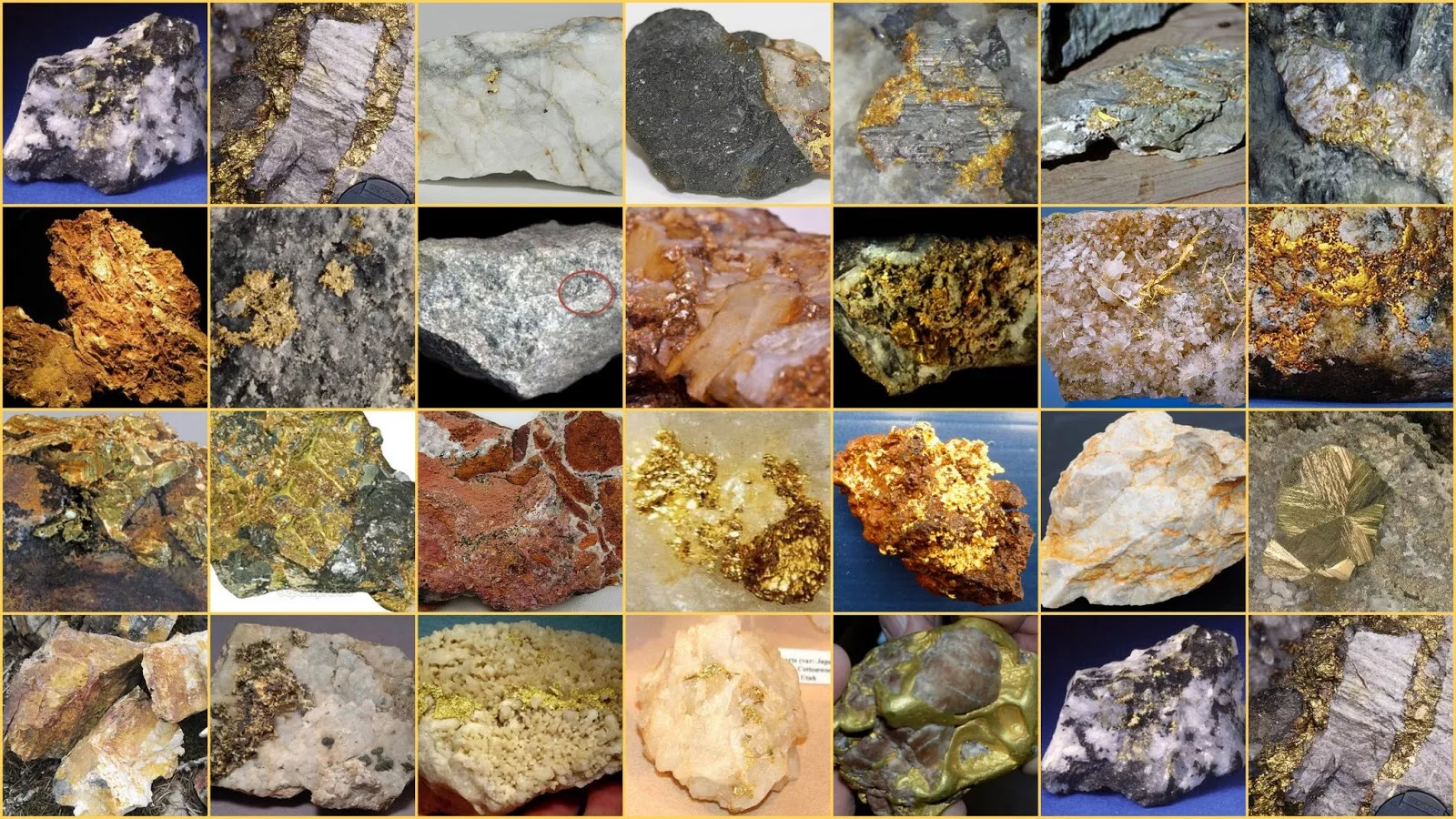Types of Markets in Nigeria: Full List
Several characteristics can be used to describe the Nigerian market. Markets are referred to as souks, bazaars, shops, arcades, fairs, and flea markets. It is, by definition, an event when people get together to exchange goods in public. It is a location where supply and demand collide. The market isn’t just one place in Nigeria; it’s everywhere. A market typically consists of stalls or shops where things are kept and exhibited for sale.

Bird-eye view of the popular Onitsha main market in Anambra state, Nigeria
Nigeria is home to many different markets. This has made it very simple for country residents to respond quickly to demands. The cliché “necessity is the mother of invention” applies here. Nigerians always take the initiative to select a market that would meet their demands. You must be familiar with the internet market place. The market storyline in Nigeria has shifted as a result of online retailers like Jumia, Konga, Opay Mall, JiJi, etc. However, prior to this modification, the market was structured in the manner that is described below.
TYPES OF MARKETS IN NIGERIA: FULL LIST
Below, the various market kinds in Nigeria will be discussed.
CAPITAL MARKET
Capital market is a type of market where equity shares and bonds are traded and purchased. The Nigerian Stock Exchange is another name for the capital market in the country. The financial industry’s powers dominate the control and management of the trade that occurs on the capital market.
The capital market enables businesses and governmental organizations to effectively employ the resources provided to them in order to make long-term investments. Despite being under the custody of specific entities, the public can nonetheless access the transactions.
Governments and businesses both issue bonds and equity to the general public on the capital market. The majority of loans offered on the capital market are long-term. The Nigerian Stock Exchange is a component of the national financial system. It focuses on capital raising through the issuance of shares, bonds, and other lucrative long-term investments. Investments and earnings are therefore distributed between buyers and sellers on the capital market.
MONEY MARKET
The money market is a different category of market in Nigeria. Short-term loans are provided in this marketplace to individuals and businesses in need. Numerous financial transactions also occur in a money market. One benefit of the money market is that it has a significant impact on how the country’s economy develops. The imbalance between the producers and consumers for funds is attempted to be balanced by the money markets. In other words, the money market aims to strike a balance between the supply and demand for money, however temporarily.
The money market also helps Nigeria’s economy grow since it is always willing to lend money to any aspect of the economic growth of the country that needs it. The money market also provides funding for a range of people, organizations, and businesses. The money market makes sure that funding is always available and keeps its doors open to enterprises. In other terms, the money market offers financing to companies and other organizations.
LABOUR MARKET
The labor market is the kind of market where people sell their labour to businesses and organizations that require their skills and knowledge in return for pay or income. The term “job market” is another name for this kind of market. In the labour market of Nigeria, businesses supply the need for labor while various employees supply it.
The Nigerian labour market is overflowing with professionally qualified, highly competent workers who are also quite adaptable and flexible in terms of production. The labour offered by the Nigerian labour market is also noteworthy for being incredibly cost-effective. The labour market in Nigeria is influenced by a number of factors. They include laws governing the minimum wage as well as labour supply and demand.
COMMODITY MARKET
Commodity markets in Nigeria come in a variety of forms. They consist of outdoor markets, stalls, storefronts, and internet shopping. The kinds of markets we typically encounter in modern culture are open-air ones. A public marketplace is used in this kind of market for the exchange of goods. Trading takes place in both temporary and permanent stalls at this form of market. Most frequently, the local government council constructs these markets. The council often oversees and maintains them. The general public can trade and purchase various consumer goods at open-air markets whenever they need to.
Stalls are a different kind of commodity market. The majority of cities and towns have major market stalls. Numerous dealers place their goods on display in these built-in stalls where customers can stop by and make purchases. Additionally, these vendors use these booths to store their merchandise. The majority of the stalls are found at tiny street markets and trade shows.
Stores are a form of commodity market that can be constructed as a standalone structure or as a block of shops. These stores offer a variety of items and commodities for sale to those that require them. On the other hand, online stores are online markets where customers may purchase goods and have them delivered. Online stores like Jumia, Jiji, Konga, and others are available.
FOREIGN EXCHANGE MARKET
Foreign exchange market is the market type that specializes with the purchasing and selling of foreign currency. Any kind of international currency is traded on this kind of market. This transaction and exchange are determined by the exchange rate. This exchange rate represents the relative worth of different currencies. The primary participants in the foreign exchange market in Nigeria are licensed dealers, which are financial organizations. They receive their license to trade and exchange foreign exchange, or FX, from the Central Bank of Nigeria.
There are numerous segments of the Nigerian foreign exchange (FX) market where individuals can trade. Windows are the term for these divisions.
CONCLUSION
Markets are designated locations where supply and demand are balanced. A market is a place where money is exchanged. These exchanges entail both buying and selling. Markets come in a variety of forms, whether they be capital markets or commodity markets. The various market types in Nigeria were thoroughly addressed in this article.


